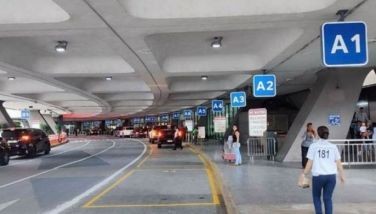How to exempt your business from income tax
March 28, 2006 | 12:00am
Businessmen, especially small entrepreneurs, are often times challenged with the dilemma of how to generate more income and minimize their expenditures. It is in recognition of this that Republic Act (RA) No. 9178, otherwise known as the "Barangay Micro Business Enterprises (BMBEs) Act of 2002", was enacted.
The policy underlying RA No. 9178 is a noble one. RA No. 9178 was crafted to encourage the formation and growth of BMBEs, which effectively serve as seedbeds of Filipino entrepreneurial talents, and to integrate those in the informal sector with the mainstream economy. Its most salient feature pertains to the tax incentives granted to BMBEs, specifically the exemption from tax of the income arising from the operation of the enterprise; exemption from or reduced rates of local taxes, fees and charges; and exemption from gross receipts tax (GRT).
One can register as a BMBE if it is a business entity or enterprise, whether operated as a sole proprietorship or a corporation, partnership, cooperative or association, organized/incorporated and existing under Philippine laws and is: (a) engaged in the production, processing or manufacturing of products or commodities, including agro-processing, trading and services, and which activities are barangay-based and micro-business in nature and scope; and (b) whose total assets, real or personal, inclusive of those arising from loans but exclusive of the land on which the particular business entity’s office, plant and equipment are situated, shall not be more than P3,000,000.
The application for registration as a BMBE, or BMBE Form 01, should be accomplished in triplicate and filed with the Office of the City or Municipal Treasurer where the principal place of business of the BMBE is located. The application should be processed within fifteen (15) working days upon submission of complete documents, otherwise, the BMBE shall be deemed registered. If the business entity or enterprise is found to be eligible, the Office of the City or Municipal Treasurer will register the business entity or enterprise as a BMBE and issue a Certificate of Authority (CA), which shall be effective for a period of two years, and renewable for a period of two (2) years for every renewal. The Office of the Treasurer shall issue the CA promptly and free of charge, unless a fee, not exceeding One Thousand Pesos (P1,000), is imposed by the local government unit concerned through a properly enacted ordinance.
The income of a BMBE arising purely from its operations is exempt from income tax. To avail of such tax incentive, all that is needed is to register the BMBE with the BIR Revenue District Office (RDO) where the principal office or place of business of the BMBE is located. If the enterprise is currently registered with the BIR, the BIR shall record its registration as a BMBE and shall correspondingly amend the registration certificate. On the other hand, if the BMBE has not yet been registered, the BMBE shall register for each type of internal revenue tax, except income tax, but including withholding taxes for which it is liable. If a BMBE is also entitled to exemption from income tax under any law other than RA No. 9178, it has to disclose this fact in its registration form and indicate whether it shall avail itself of such exemption or the privilege under RA No. 9178. The choice made is binding on the BMBE for the entire period of validity of its registration with the BIR, which is usually one year.
Every BMBE entitled to full income tax exemption is required to file an Annual Information Return, together with an Account Information Form, or its equivalent, containing data from audited financial statements and a sworn statement of assets owned and/or used in business. The Return shall be filed with the RDO or the duly authorized Treasurer of the city or municipality in which the BMBE has its principal place of business on or before the 15th day of the fourth month following the close of the taxable year.
It should be noted that the income tax exemption privilege of a BMBE can be revoked under any of the following circumstances:
(a) When the BMBE transfers its place of business to another locality;
(b) When the value of its total assets exceeds P3,000,000;
(c) When the BMBE voluntarily surrenders its Certificate of Authority to the Office of the City or Municipal Treasurer;
(d) In case of death of the registered individual owner of the BMBE, if it is a sole proprietorship;
(e) In case of violation or non-compliance with the provisions of RA No. 9178, the Implementing Rules and DOF Department Order No. 17-04;
(f) In case of merger or consolidation with an entity which is not eligible to be a BMBE;
(g) In case of sale or transfer of the BMBE, if it is a sole proprietorship, without prejudice to the transferee applying for registration should it be qualified under the terms of DOF Department Order No. 17-04;
(h) Submission of fake or false or falsified documents;
(i) In case of retirement from business, or cessation/suspension of operations for one year; and
(j) Making false or omitting required declarations or statements.
If any of the above circumstances is found to exist, the BIR will notify the BMBE in writing of its findings and require the BMBE to pay the corresponding income tax. This is, however, without prejudice to the filing of the appropriate administrative or criminal complaints, if warranted.
Aside from exempting the BMBE’s income from tax, RA No. 9178 also encourages the local government units to either reduce the amount of local taxes, fees and charges imposed or to exempt the BMBEs from local taxes, fees and charges. Moreover, the BMBEs are exempt from the coverage of the Minimum Wage Law. However, its employees shall be entitled to the same benefits given to any regular employee such as social security and healthcare benefits.
Likewise, the interests, commissions and discounts derived from the loans granted by the Land Bank of the Philippines, the Development Bank of the Philippines, the People’s Credit and Finance Corp., and the Small Business Guarantee and Finance Corp. to duly-registered BMBEs, as well as loans extended by the Government Service Insurance System and Social Security System to their respective member-employees for the purpose of establishing BMBEs, shall be exempt from GRT. To avail of the exemption, a certified copy of the BMBE’s registration with the BIR should be submitted to the lending institution concerned.
The incentives herein mentioned are only a few of those granted under RA No. 9178. While operating a BMBE is not expected to turn one into a business tycoon, the benefits that the law grants guarantees the micro businessman a better opportunity to compete in a more diverse and free market.
(The author is an Associate of Angara Abello Concepcion Regala & Cruz Law Office (ACCRALAW). She may be contacted at tel. no. 830-8000 or e-mail at [email protected]. Website: www.accralaw.com
The policy underlying RA No. 9178 is a noble one. RA No. 9178 was crafted to encourage the formation and growth of BMBEs, which effectively serve as seedbeds of Filipino entrepreneurial talents, and to integrate those in the informal sector with the mainstream economy. Its most salient feature pertains to the tax incentives granted to BMBEs, specifically the exemption from tax of the income arising from the operation of the enterprise; exemption from or reduced rates of local taxes, fees and charges; and exemption from gross receipts tax (GRT).
The application for registration as a BMBE, or BMBE Form 01, should be accomplished in triplicate and filed with the Office of the City or Municipal Treasurer where the principal place of business of the BMBE is located. The application should be processed within fifteen (15) working days upon submission of complete documents, otherwise, the BMBE shall be deemed registered. If the business entity or enterprise is found to be eligible, the Office of the City or Municipal Treasurer will register the business entity or enterprise as a BMBE and issue a Certificate of Authority (CA), which shall be effective for a period of two years, and renewable for a period of two (2) years for every renewal. The Office of the Treasurer shall issue the CA promptly and free of charge, unless a fee, not exceeding One Thousand Pesos (P1,000), is imposed by the local government unit concerned through a properly enacted ordinance.
Every BMBE entitled to full income tax exemption is required to file an Annual Information Return, together with an Account Information Form, or its equivalent, containing data from audited financial statements and a sworn statement of assets owned and/or used in business. The Return shall be filed with the RDO or the duly authorized Treasurer of the city or municipality in which the BMBE has its principal place of business on or before the 15th day of the fourth month following the close of the taxable year.
It should be noted that the income tax exemption privilege of a BMBE can be revoked under any of the following circumstances:
(a) When the BMBE transfers its place of business to another locality;
(b) When the value of its total assets exceeds P3,000,000;
(c) When the BMBE voluntarily surrenders its Certificate of Authority to the Office of the City or Municipal Treasurer;
(d) In case of death of the registered individual owner of the BMBE, if it is a sole proprietorship;
(e) In case of violation or non-compliance with the provisions of RA No. 9178, the Implementing Rules and DOF Department Order No. 17-04;
(f) In case of merger or consolidation with an entity which is not eligible to be a BMBE;
(g) In case of sale or transfer of the BMBE, if it is a sole proprietorship, without prejudice to the transferee applying for registration should it be qualified under the terms of DOF Department Order No. 17-04;
(h) Submission of fake or false or falsified documents;
(i) In case of retirement from business, or cessation/suspension of operations for one year; and
(j) Making false or omitting required declarations or statements.
If any of the above circumstances is found to exist, the BIR will notify the BMBE in writing of its findings and require the BMBE to pay the corresponding income tax. This is, however, without prejudice to the filing of the appropriate administrative or criminal complaints, if warranted.
Aside from exempting the BMBE’s income from tax, RA No. 9178 also encourages the local government units to either reduce the amount of local taxes, fees and charges imposed or to exempt the BMBEs from local taxes, fees and charges. Moreover, the BMBEs are exempt from the coverage of the Minimum Wage Law. However, its employees shall be entitled to the same benefits given to any regular employee such as social security and healthcare benefits.
Likewise, the interests, commissions and discounts derived from the loans granted by the Land Bank of the Philippines, the Development Bank of the Philippines, the People’s Credit and Finance Corp., and the Small Business Guarantee and Finance Corp. to duly-registered BMBEs, as well as loans extended by the Government Service Insurance System and Social Security System to their respective member-employees for the purpose of establishing BMBEs, shall be exempt from GRT. To avail of the exemption, a certified copy of the BMBE’s registration with the BIR should be submitted to the lending institution concerned.
The incentives herein mentioned are only a few of those granted under RA No. 9178. While operating a BMBE is not expected to turn one into a business tycoon, the benefits that the law grants guarantees the micro businessman a better opportunity to compete in a more diverse and free market.
(The author is an Associate of Angara Abello Concepcion Regala & Cruz Law Office (ACCRALAW). She may be contacted at tel. no. 830-8000 or e-mail at [email protected]. Website: www.accralaw.com
BrandSpace Articles
<
>
- Latest
- Trending
Trending
Latest




























